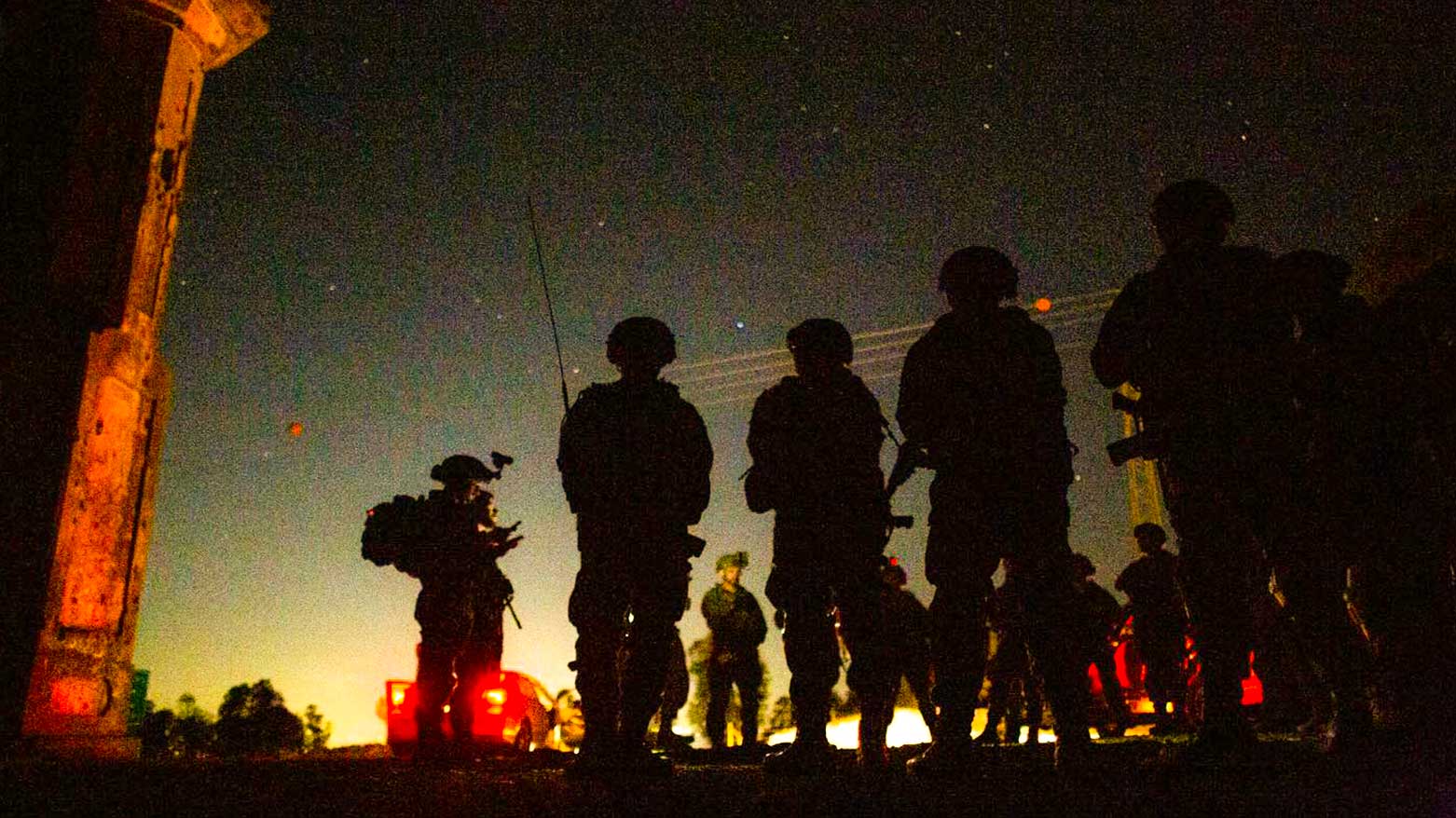Lebanese President Orders Army to Confront Israeli Incursions After Deadly Raid in South Lebanon
The Israeli military acknowledged the operation, saying its forces were acting against Hezbollah infrastructure in the Blida area when they encountered a “suspect.”

ERBIL (Kurdistan24) — Lebanese President Joseph Aoun on Thursday ordered the country’s armed forces to confront any Israeli incursions into Lebanon’s south after an Israeli raid killed a municipal worker in the border village of Blida, reigniting fears of renewed hostilities between the two neighbors.
In a statement released by the presidency following a meeting with the army chief, Aoun directed the military to “confront any Israeli incursion into liberated southern territory, in defense of Lebanese territory and the safety of citizens.”
His remarks came after Israeli troops raided the Blida municipal building overnight, killing Ibrahim Salameh, a municipal employee who had been sleeping on duty inside the premises, according to Lebanon’s state-run National News Agency (NNA).
Lebanon’s health ministry confirmed Salameh’s death, while an AFP journalist reported bullet holes riddling the walls and windows of the municipal building.
“We heard Israeli soldiers shout, then there were gunshots,” said Hisham Abdel Latif Hassan, Salameh’s nephew. “After the soldiers withdrew, we found him dead near his mattress.”
The Israeli military acknowledged the operation, saying its forces were acting against Hezbollah infrastructure in the Blida area when they encountered a “suspect.”
“An immediate threat against the troops was identified, and they fired to remove it,” the statement read, adding that the incident is under review.
Israeli officials accused Hezbollah of “using the building for terrorist activity under the guise of civilian infrastructure.” The militant group condemned the killing as a “cold-blooded crime”, commending Aoun for his directive to confront Israeli forces.
Lebanese Prime Minister Nawaf Salam denounced the raid as “a flagrant aggression against Lebanese state institutions and sovereignty,” while local residents described the incursion as “unprecedented,” saying Israeli troops remained in the village for several hours before withdrawing at dawn.
Later in the day, the NNA reported another Israeli strike in Adaisseh, where a hall used for religious ceremonies was destroyed, and fresh airstrikes in Mahmudiyah and Labbouneh, both near the Israeli border.
The Israeli military said its forces hit “Hezbollah terrorist infrastructure, including a launcher and tunnel shaft,” in Mahmudiyah. Meanwhile, Israeli drones were seen flying at low altitude over Beirut, according to Lebanese media.
The United Nations has warned that Israeli operations in Lebanon have intensified in recent weeks despite the November 2024 ceasefire with Hezbollah, which followed more than a year of cross-border violence sparked by the October 2023 Gaza war.
Adding to the escalating tensions, Israel accused United Nations peacekeepers (UNIFIL) earlier this week of deliberately shooting down one of its surveillance drones near Kfar Kila.
Israeli military spokesman Lt. Col. Nadav Shoshani called the incident “a serious and unjustified act” that endangered regional stability. UNIFIL defended its actions, claiming the drone had flown “aggressively” over its patrol.
Israel’s Prime Minister Benjamin Netanyahu responded by reaffirming Israel’s right to act independently to safeguard its borders. “Israel is an independent state. We will defend ourselves by our own means, and we will continue to determine our fate,” he told cabinet ministers, insisting that Israeli defensive operations are “acts of survival, not aggression.”
The latest escalation underscores the fragility of the Israel-Lebanon border more than a year after the Gaza conflict triggered a surge in cross-border exchanges between Israel and Hezbollah.
Despite the ceasefire, Israel maintains limited troops in five areas of southern Lebanon, arguing that its presence is necessary to monitor Hezbollah’s ongoing violations of UN Security Council Resolution 1701, which mandates the group’s withdrawal north of the Litani River.
Washington has been pressing Beirut to disarm Hezbollah and bring all weapons under state control. During a recent meeting of ceasefire monitors in Naqoura, U.S. envoy Morgan Ortagus said the U.S. welcomed Lebanon’s decision to begin this process by the end of the year.
However, with Hezbollah still entrenched in the south and Israel vowing to act unilaterally to prevent further attacks, Military experts warn the situation risks spiraling into another destructive confrontation — one that could once again pull the wider region into conflict.